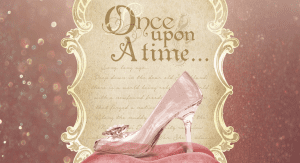
If you’re anything like me, you grew up watching all the Disney fairy tales. My favorite was Sleeping Beauty and my five-year-old self swooned over Prince Phillip. I loved how he valiantly fought Maleficent for the woman he loved. When he and Princess Aurora danced at the end of the movie, everything seemed so perfect. I just knew that true love was supposed to end this way: “happily ever after.”
Although I didn’t realize it at the time, my beloved Disney movies failed to give me an accurate picture of married life. Marriage is a beautiful picture of love and commitment between two people, but it is imperfect. There are arguments and misunderstandings. There are hurt feelings and painful words spoken. Marriage is hard. It is messy. But so worth it.
I am, without a doubt, a better person because of my husband. I am less critical than I used to be. I extend forgiveness more easily. I’ve learned to loosen up a little bit. I am a better person, but it came at a price. It cost me my pride and my ego. It can be painful and vulnerable to have all of your flaws exposed and sanded down. Marriage is hard, but it is worth fighting for.
I’ve been married for 11 years. I am by no means an expert and still fail far more than I would care to admit, but I’d like to share a few of the most valuable lessons I have learned in the hopes that you, too, may find your “happily ever after.”

Find his love language.
You may have heard of the book The Five Love Languages by Gary Chapman. A love language is how an individual best receives love from others. Figuring out your own love language is the first step; finding your husband’s is the second. It is very common to assume that the way you best receive love is the way your spouse also receives love. However, this is not always the case.
My top love languages are “acts of service” and “quality time,” while my husband’s are “receiving gifts” and “words of affirmation.” Until we realized the importance of speaking each other’s love languages, we were spinning our wheels and wondering where the disconnect was. It took a while to iron out the wrinkles, but knowing our love languages has made things smoother in making sure we both feel loved and understood. Check out BMC contributor Dominique’s recent article for a more in-depth look on this subject!
Communicate clearly.
My husband and I have never had an issue with lack of communication. Rather, our issues have stemmed from how we communicate. Men and women are very different (shocker!) and sometimes things can get lost in translation. The way I interpret my husband’s words may be quite different from what he actually means. I can totally twist the heart of what he’s saying into something else entirely. This has led to confusion, as well as quite a few arguments.
It took time, but I finally began to ask questions about his meaning. I will say, “I hear you saying, ‘ABC.’ I feel like you mean, ‘XYZ.’” Then, he can respond clearly to my interpretation. There may still be friction, but instead of telling myself a false story about his meaning, I’m giving him a platform to clear things up.
Clarify expectations.
Whether we realize it or not, we all go into marriage with expectations of our spouse. Many of these expectations can come from our upbringing and the environment we grew up in. These expectations could include who will take out the trash, who will read the bedtime stories to the kids, who will be in charge of the money, how conflict will be handled, and so on.
If resentment and anger have built up because of unmet expectations, it’s probably time to examine them. Some of your expectations may be perfectly reasonable but have never been clearly expressed to your husband. Others may just not be realistic. Once you’ve identified realistic expectations, you can talk through them with your husband. Remember that he will have expectations of his own. The goal is for both of you to work towards a solution that you agree on.

There is beauty in staying committed in marriage to someone for a lifetime. To see all their warts and weaknesses, and have them see yours, and still choose each other is a beautiful thing. Love is more than the fluttery feeling of butterflies in your stomach: love is commitment. Love is choosing to love when they hurt you. Love is refusing to quit. Love can be hard, but there is nothing better than doing life together with your very best friend. And that is living “happily ever after.”
Do you have any tips for finding “happily ever after”? If so, comment below!












Good perspective. Thanks for sharing.
Comments are closed.